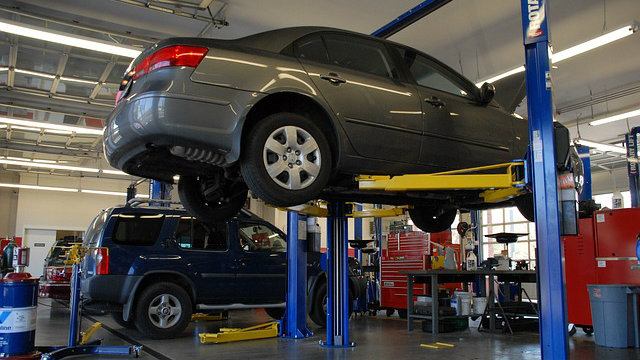Up more than 530% over the past five years, investors have gotten used to a climbing share price with Boyd Group Income Fund (TSX:BYD.UN). In fact, the easy prediction is that the mutual fund trust will continue to climb ever higher, supported by increased demand for glass repair and replacement services in North America.
The growth strategy
The glass repair company has undertaken a proven growth strategy — namely, it’s acquiring all the little guys and eating up more market share, creating synergies along the way. The trust has certainly done that, compiling a network of repair facilities and retail auto glass outlets spanning five Canadian provinces and 30 U.S. states. To do so, the company has continuously grown its debt load from $77 million to $168 million over the past four years at a compounded annual growth rate (CAGR) of 21.5%.
The company’s free cash flow has grown over the same period from $16 million to $78 million, or at a CAGR of 48.6% — not too shabby of a pace if you ask most investors. Certainly, a debt load of $168 million, which is approximately 10% of the company’s overall valuation, isn’t too cumbersome, given the earnings-growth rate provided by the operating business. In theory, management should continue doing what it does best and continue to pick off the little guys one by one.
The problem(s)
What has remained curious to me, however, are a few line items which stand out when reading Boyd’s financial statements:
- Average shares outstanding are increasing each year over the past four years.
- An additional 450,000 shares are expected to be issued over the next three years according to the company’s executive compensation plan, diluting existing shareholders by 2.4% over this time frame.
- A large acquisition made in Q2 of Assured Automotive to result in an additional issuance of 537,872 Boyd Group Income Fund units, as well as a cash portion amounting to $150 million, diluting existing shareholders by 2.9% immediately. Previous acquisitions follow this pattern.
- A negative average return on equity (ROE) and return on assets (ROA) over the past five years.
- Slowing revenue growth, indicating more acquisitions will be needed and on a larger scale moving forward.
Growth by dilution
Issuing shares in a rising share price environment is an intelligent thing for Boyd’s management team to do; however, shareholders need to be aware of how the dilutive nature of these deals may impact earnings moving forward. The effect of continued share issuances, whether related to executive compensation or acquisitions, is a corresponding reduction in ROE and ROA, impacting shareholders accordingly.
Bottom line
Boyd is a company operating in a fragmented industry; by consolidating many of the small operators, the company has built a reputation for growth, which has served the company well over the years. That said, the lack of a real, durable, long-term competitive advantage, combined with consistent dilution and fewer available deals that fall within the scope of what Boyd’s management team can carry out is likely to impact earnings in the medium to long term.
As a short-term play, Boyd may make sense for investors hoping to cash in on a few more years of accretive growth. As with other acquisition-based growth models in stagnating industries with relatively small competitive moats, I don’t see the long-term play here. In fact, I would advise long-term investors to stay away from this name.
Stay Foolish, my friends.

 Don't let our Poutine Day offer get cold: 65% off Stock Advisor ends at midnight!
Don't let our Poutine Day offer get cold: 65% off Stock Advisor ends at midnight!








